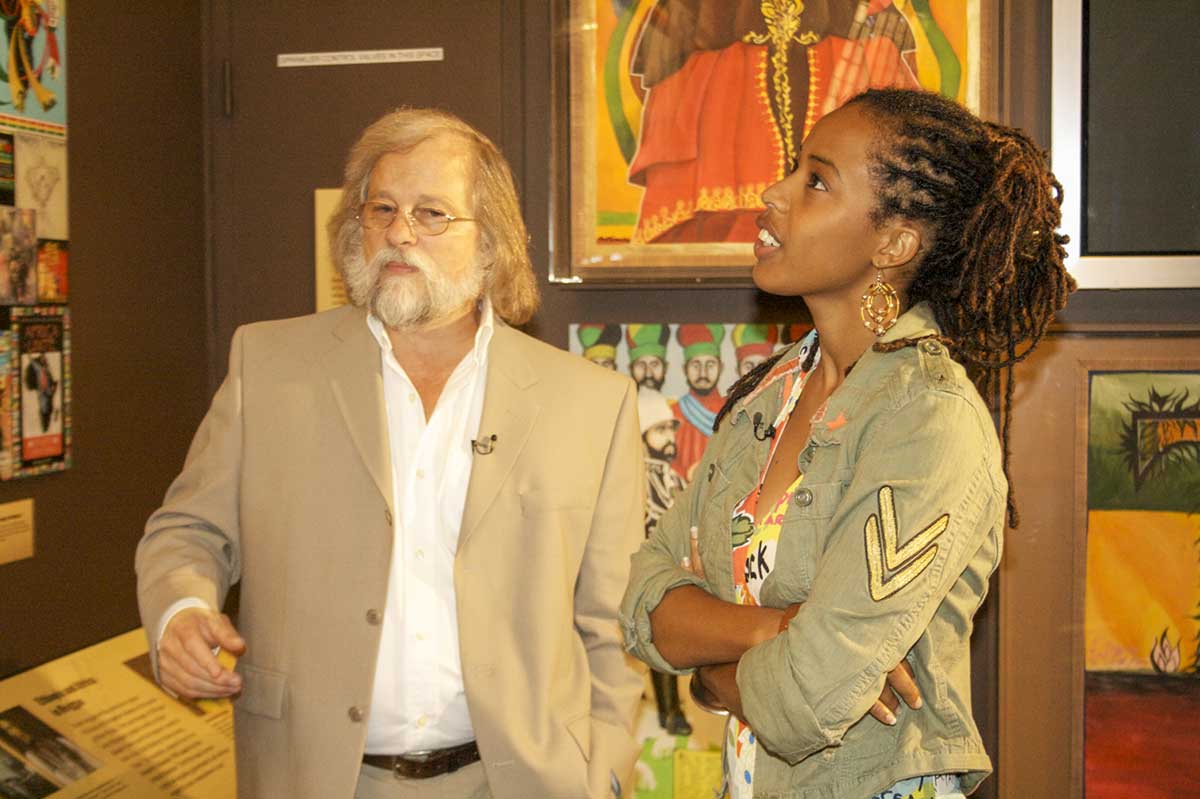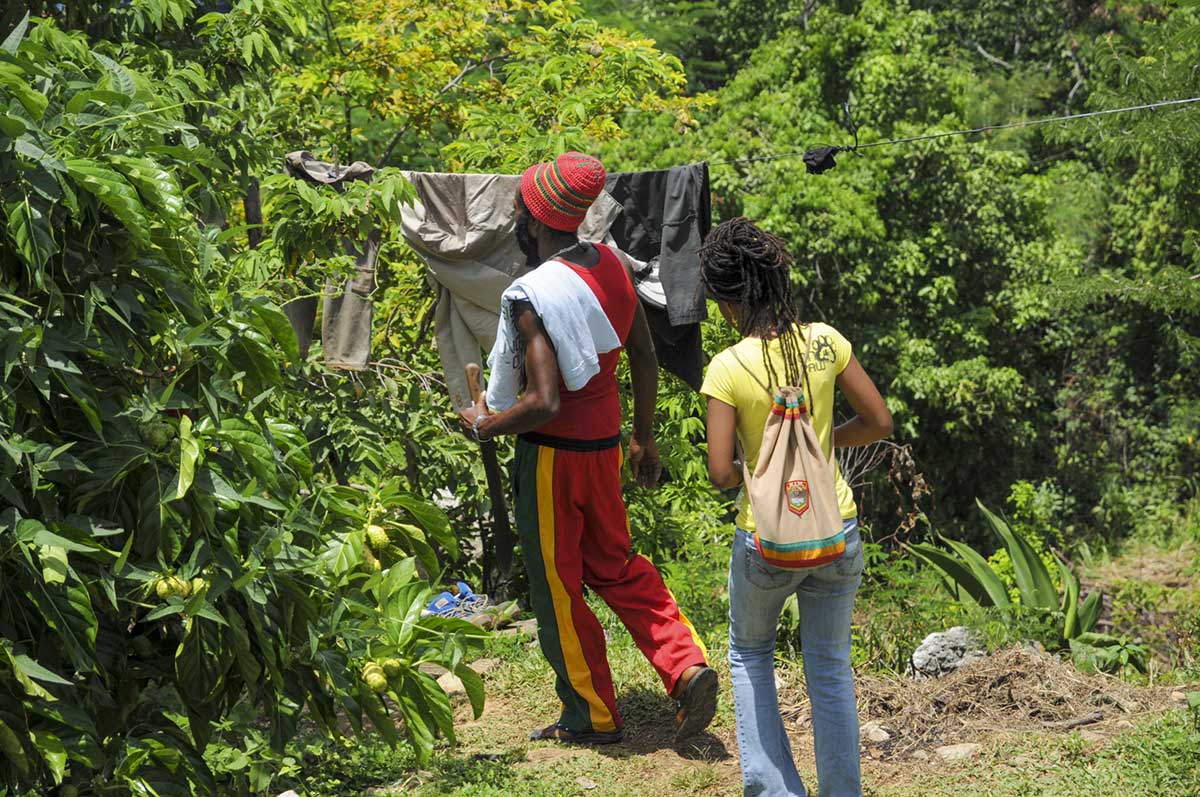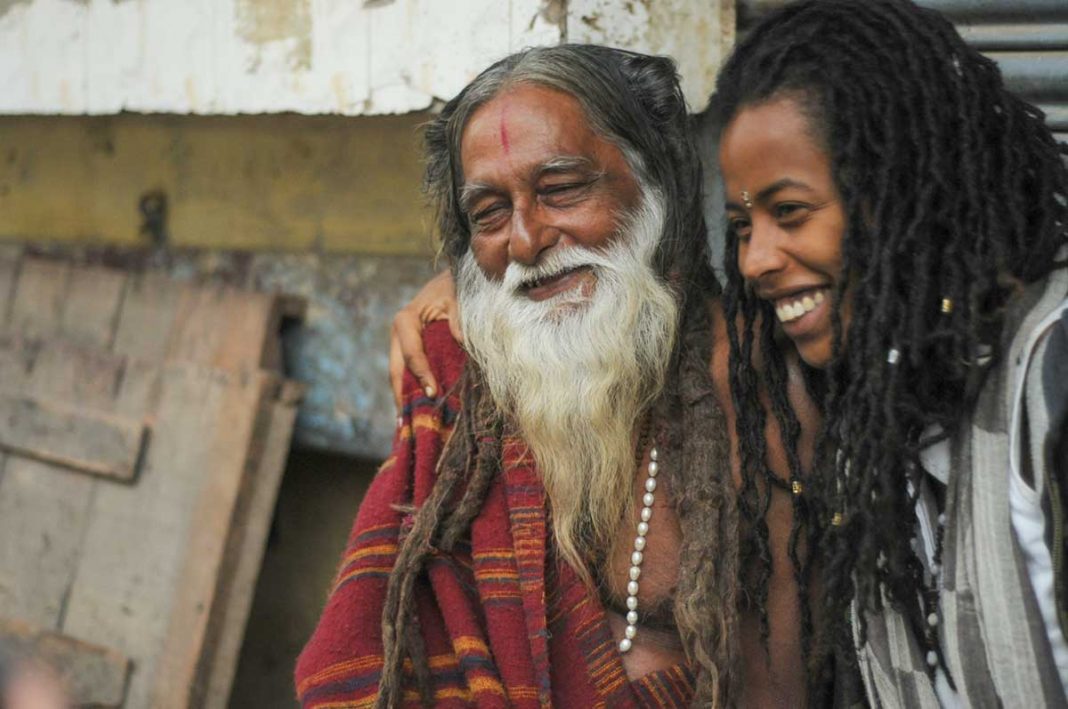Bob Marley descendent explores ‘Rasta’ culture in Manitoulin-backed film
TORONTO – A strong movement against anti-Black racism has captured global attention in recent weeks alongside calls for equity, peace and freedom that are also present within Rastafari culture, as explored in ‘RasTa: A Soul’s Journey,’ a 2012 documentary with connections to Manitoulin Island.
Rastafari is a religious and cultural movement with ties to Ethiopia that began among former slaves in Jamaica in the 1930s. One of its most notable figures, Bob Marley, would have turned 75 this year, an anniversary that fell at a time when many Rastafari principles have been gaining prominence on a global scale.
Its symbols have spread worldwide but beyond the reggae and drum music, the dreadlocks, the red, green and gold colours and the ganja—most of which simply mean ‘Jamaica’ to observers—Rastafari offers an invitation to explore what an equitable, post-colonial society could be.
Patricia Scarlett, executive producer of ‘RasTa: A Soul’s Journey,’ said she first witnessed the depth of the culture when she moved from Canada to attend school in her birthplace of Jamaica.
This film was important for Ms. Scarlett because it spoke to the resiliency of the oppressed cultures of Africa and the diaspora.
A lack of funding threatened Ms. Scarlett’s plans to film at a three-month-long Smithsonian exhibit about Rastafari. Her parents offered some money as a stop-gap and she secured a loan from an industry friend and colleague—Shirley Cheechoo, founder of M’Chigeeng’s Weengushk Film Institute.
Ms. Scarlett helped write the Manitoulin film school’s original business proposal and continues to teach a class there alongside her production partner for the documentary, Marilyn Gray of Rockville.
“I couldn’t have crossed the finish line without her,” said Ms. Scarlett.
As she gathered more clips, the project gained momentum and she soon found the right protagonist for the film: Donisha Prendergast.

Ms. Prendergast is a public speaker who took up activism as she travelled the world and learned more about its many peoples. The Toronto resident visited eight countries for the film to explore the connections between Rastafari and global cultures; she recently completed a film production degree at Ryerson University.
“It was life-changing to say the least. As a young person coming into my own, it definitely helped to give me a global perspective of Rastafari but also the needs of humanity and the role I could play,” she said.
Ms. Prendergast had a lot to learn about Rastafari despite growing up with the culture and being a granddaughter of Bob Marley, one of the most visible figures of Rastafari.
She grew up touring with Ziggy Marley and the Melody Makers; her mother, Sharon Marley, was a member of the group.
“I had amazing experiences, seeing how reggae moves people of different nations and colours. (Touring with the band) was my first real introduction into Rastafari but the documentary gave me a much clearer insight into the roots and evolution of the movement,” said Ms. Prendergast.
She soon discovered Israel’s strong Rastafari presence and her time in India revealed how Rastafari was rooted in Indian culture, especially in its foods and its people’s spiritual connection with the land.
Ms. Prendergast criticized the hypocrisy of Jamaica for simultaneously suppressing Rastafari and using its visual symbols as a way to market the country. Witnessing that disparity sparked a fire within her to speak out, just as her grandfather did when he was around her age.
“The experience of being a Black person in the 21st century is heavy. It doesn’t matter where you are in the world, there are so many divisions and so many different experiences that negate your existence,” she said. “As creatives, we have the space and the responsibility and the response-ability to say something.”
Rastafari advocates for changing current systems of power and exploring ways of life that do not depend on colonial structures.
“From the genesis of the movement, equal rights and justice for all has been the call to action, has been the cry of Rastafari,” she said.
In the context of the Black Lives Matter movement and growing cries against anti-Black racism, Ms. Prendergast said many Rastafari ideals are relevant today.

“There’s an energy, I think, that is being restored,” said Ms. Prendergast. “Even our own Black people have looked down and laughed at us when we talk about the impact of slavery and colonialism until today, thinking we’re over the top. But now it’s so popular and, sad to say, in many ways a fad to identify systemic oppression. There’s a space for the philosophies of Rastafari to take the main stage.”
Rastafari has a troubled history. Ms. Prendergast said the Jamaican government would take Rastafari children away from their parents, force them to eat meat against ‘ital,’ their diet, and make them attend schools to strip away their culture.
In fact, consuming ganja (a Hindi word for cannabis) for spiritual purposes as part of Rastafari traditions was illegal in Jamaica until 2015. This sets up a stark contrast between the way Jamaica outwardly brands itself as a Rastafari haven and the realities for its Rastafari citizens, as Ms. Prendergast described.
Some Rastafari worry about their ability to form effective new governance structures in light of decades of governments suppressing their culture.
Within the era of Black Lives Matter, many have been quick to denounce systemic violence in the US, saying ‘better’ countries like Canada are not beset with the same bigotry.
Careful observers, however, will note that many policies and structures within Canada are inherently racist. Ms. Prendergast’s description of government crackdowns on Rastafari bears a striking resemblance to the policies of assimilation that Canada adopted to integrate Indigenous peoples into its society through ‘civilizing’ them.
Canada certainly has barriers, said Ms. Scarlett, who has experienced them while fighting for a place within the film and television industry. She said firing or shunning people for making an anti-Black comment is only performative and should not be the ultimate goal; rather, meaningful dialogues must take place to examine and eliminate subconscious biases and allow all people to freely pursue their own destinies.
“The average Canadian has had little or no contact with First Nations people,” said Ms. Scarlett. “A lot of people have grown up with the notion that racism is not a reality in Canada. But if you speak with racialized people, their lived experience tells a different story.”
However, Ms. Prendergast said Canadians might be willing to have frank discussions about their own shortcomings and work toward a more equal future.
“I find Canada to be a very forward-thinking nation despite the fact that there are a number of incidences of disillusionment, dare I use that word,” she said, noting that many people celebrating Canada Day last week ignored the tougher parts of the country’s history.
She credited Canada’s mostly-welcome embrace of immigrants in contrast to other countries that revile refugees, as well as its commitments to support its citizens during COVID-19.
“This is a great time for introspection. As much as we’re on the front lines protesting and activating, we need to take time to sit down and think about the new systems of governance we want to push forward. Our voices are clearly strong and our ability to be collective has clearly grown, but the real question is, ‘once we destroy the status quo, what are our suggestions to replace it?’” said Ms. Prendergast.





